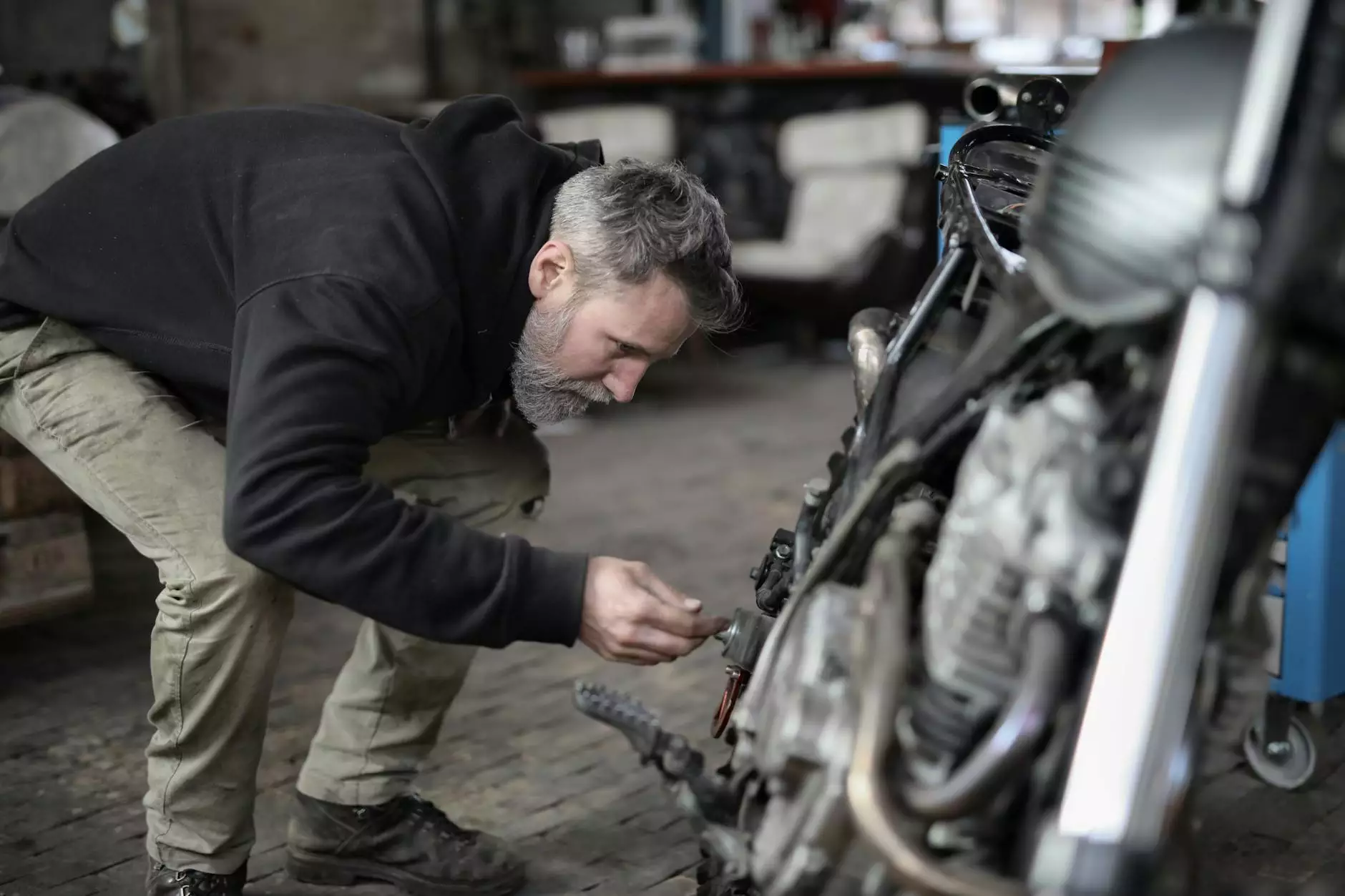Understanding Diesel Engine Cylinder Head Components

The diesel engine cylinder head plays a crucial role in the efficient functioning of diesel engines. It is one of the key components that significantly influence the performance, productivity, and longevity of the engine. In this comprehensive guide, we will delve into the various diesel engine cylinder head components, their functions, and the importance of each element in maintaining optimal engine performance. Whether you are a mechanic, a diesel enthusiast, or just looking to gain a better understanding, this article will provide you with valuable insights.
What is a Diesel Engine Cylinder Head?
The cylinder head is the component that sits atop the engine block in a diesel engine. It encases the combustion chamber and serves as a critical conduit for gases, fuel, and cooling fluids. The cylinder head is designed to withstand high temperatures and pressures, making it a highly engineered piece of equipment essential for normal engine operation.
Key Components of a Diesel Engine Cylinder Head
The diesel engine cylinder head comprises various components, each playing a unique role. Below, we will outline the essential components:
- Gaskets
- Valves
- Springs
- Camshaft
- Fuel Injection Nozzles
- Studs and Bolts
- Intake and Exhaust Ports
- Cylinder Head Casting
1. Gaskets
Gaskets serve as seals between the cylinder head and the engine block. They prevent the leakage of coolant and oil, ensuring that the engine operates correctly and efficiently. Proper gasket functioning is vital to maintain compression and prevent overheating.
2. Valves
The valves control the intake of air and the expulsion of exhaust gases. A well-functioning valve system ensures that the engine breathes adequately, contributing to its performance. Diesel engines typically feature two types of valves: intake valves, which allow air to enter the combustion chamber, and exhaust valves, which expel burnt gases.
3. Springs
The valve springs are crucial for the proper closure of the valves. They provide the necessary tension to return the valves to their closed position after they have been opened by the camshaft. Strength and flexibility in springs are vital to maintain the engine's timing accuracy.
4. Camshaft
The camshaft controls the opening and closing of the valves through its lobes, which push against the valves and their springs. Accurate camshaft timing ensures correct valve events, significantly impacting engine performance.
5. Fuel Injection Nozzles
The fuel injection nozzles are responsible for atomizing the fuel and introducing it into the combustion chamber at the right moment. This process is critical for optimizing combustion efficiency and reducing emissions. The design and positioning of these nozzles are key factors in enhancing engine performance.
6. Studs and Bolts
Studs and bolts secure the cylinder head to the engine block. They need to withstand high levels of vibration and pressure, ensuring that the head remains tightly fastened to prevent any leaks or failures during operation.
7. Intake and Exhaust Ports
The intake and exhaust ports are pathways for air and exhaust gases to enter and exit the engine. Their design directly influences engine breathing, affecting the overall efficiency and power of the engine.
8. Cylinder Head Casting
The cylinder head casting itself is typically made from aluminum or cast iron. The material chosen affects the heat dissipation, weight, and performance of the engine. Proper casting techniques ensure that the head can withstand high pressures and temperatures encountered during operation.
Types of Diesel Engine Cylinder Heads
Diesel engine cylinder heads come in various designs, each suited for specific applications. Some common types include:
- Inline Cylinder Heads
- V-Type Cylinder Heads
- Flat Cylinder Heads
- Turbocharged Cylinder Heads
Inline Cylinder Heads
Inline cylinder heads are commonly used in diesel engines due to their simplicity and ease of maintenance. They provide good airflow and are efficient in terms of design.
V-Type Cylinder Heads
V-type cylinder heads are found in larger diesel engines, such as those used in trucks and heavy machinery. This design allows for a more compact engine layout, which can be beneficial for vehicle design.
Flat Cylinder Heads
Flat cylinder heads feature a flat surface and are often used in high-performance diesel applications. They allow for better combustion efficiency and higher compression ratios.
Turbocharged Cylinder Heads
Turbocharged cylinder heads are designed specifically to accommodate turbochargers, which force more air into the combustion chamber, enhancing power and efficiency. These heads require additional modifications to manage the increased pressure and temperature.
The Importance of Quality Cylinder Head Components
In the world of diesel engines, quality matters. The performance and longevity of diesel engines depend significantly on the quality of the cylinder head components. Using high-quality parts ensures that the engine runs smoothly and efficiently, which can lead to reduced operational costs and improved reliability.
Benefits of using quality diesel engine cylinder head components include:
- Enhanced Performance: High-quality components improve airflow and combustion efficiency.
- Improved Fuel Economy: Better components lead to more efficient fuel burning, saving costs.
- Longer Lifespan: Quality materials are more durable, reducing the frequency of repairs and replacements.
- Lower Emissions: Efficient combustion results in fewer harmful emissions, benefiting the environment.
Maintenance of Diesel Engine Cylinder Head Components
Regular maintenance is crucial to prolonging the life of the diesel engine cylinder head components. Here are some essential maintenance tips:
- Regular Inspections: Periodically check the cylinder head for signs of wear, cracks, or leaks.
- Gasket Replacement: Replace gaskets as needed to prevent leaks that can lead to overheating.
- Check Valve Functionality: Ensure the valves are operating correctly to maintain proper compression.
- Monitoring Engine Temperature: Keep an eye on engine temperature to prevent overheating that could damage the head and its components.
Conclusion
Understanding the diesel engine cylinder head components is vital for anyone involved with diesel engines. Each component plays a critical role in ensuring the engine operates efficiently and reliably. By focusing on quality parts and maintaining them properly, you can enhance your engine's performance and longevity. For all your diesel engine parts needs, look no further than client-diesel.com, your reliable source for high-quality diesel engine parts and spare parts suppliers.
FAQs About Diesel Engine Cylinder Head Components
1. What are the main functions of the diesel engine cylinder head?
The cylinder head houses the combustion chamber and plays a vital role in the intake and exhaust of air and gases, contributing to the engine's overall performance.
2. How often should I replace cylinder head components?
Replacement frequency can vary based on usage. Generally, inspect components regularly and replace them as needed, especially if you notice signs of wear or leaks.
3. Can I upgrade my diesel engine cylinder head for better performance?
Yes, upgrades such as high-performance valves, camshafts, and turbocharged cylinder heads can enhance engine performance.
4. What are signs of a failing cylinder head?
Signs include coolant leaks, overheating, poor engine performance, and visible cracks or damage to the head.
5. Why is it essential to use quality components?
Quality components ensure better engine efficiency, durability, and reduce the risk of failure, leading to lower maintenance costs over time.









